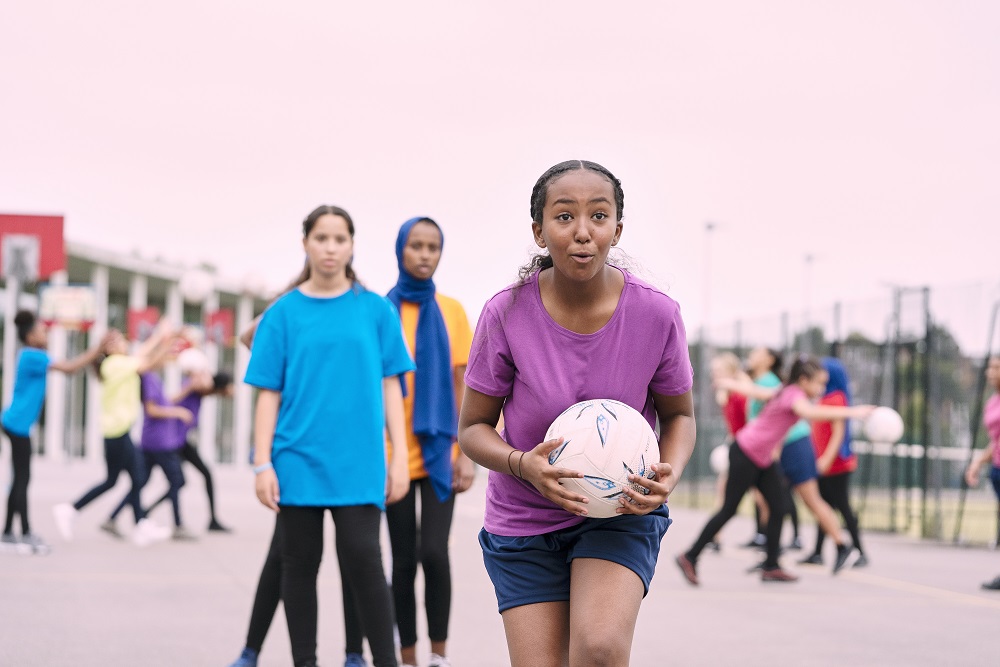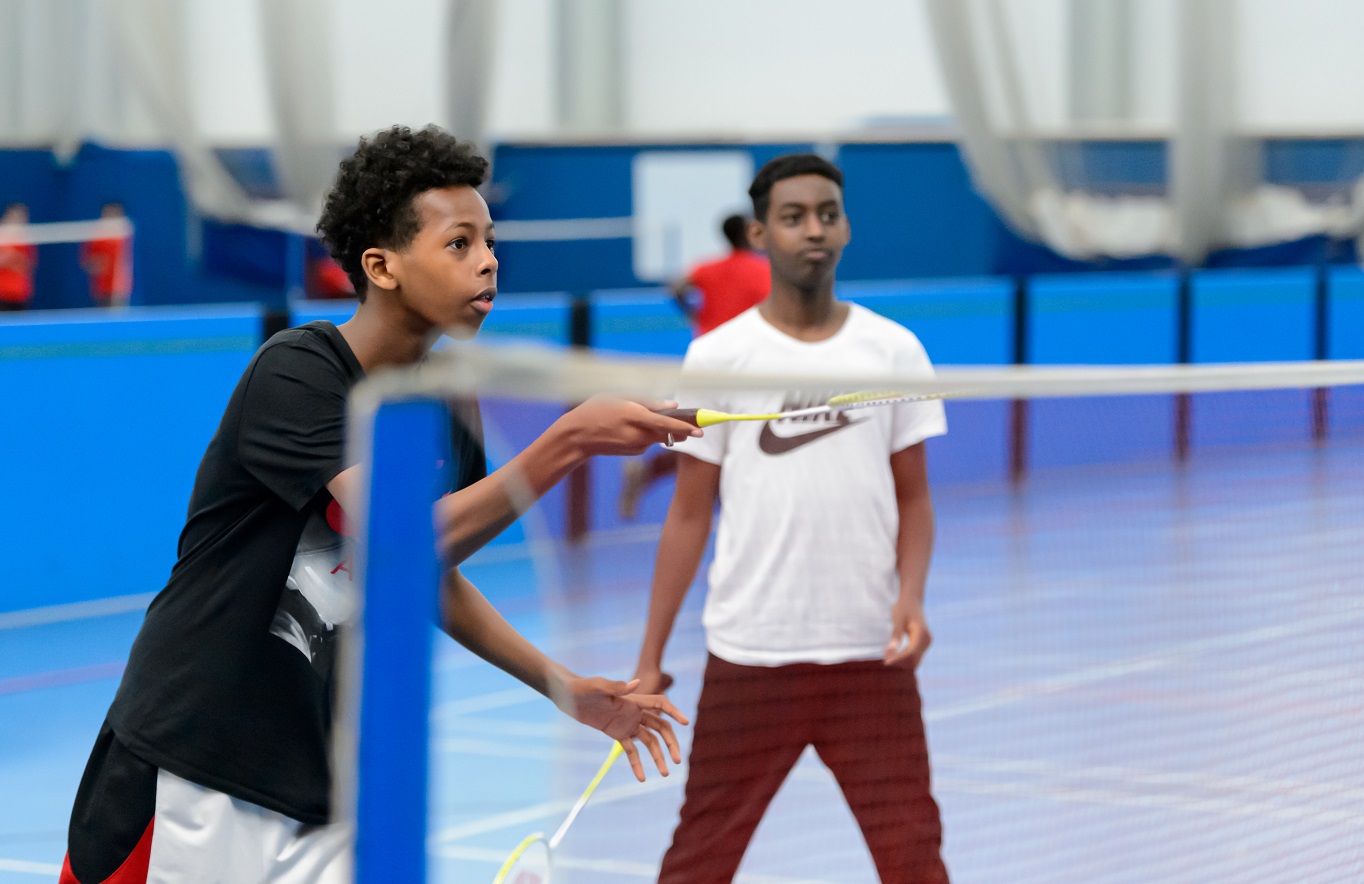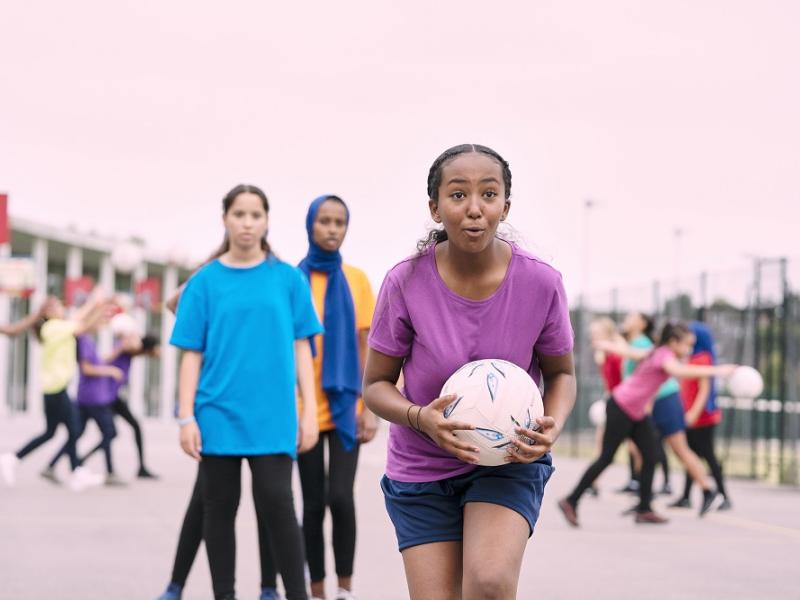In its role as a member of the National Sector Partners Group, the Sport for Development Coalition supports the following joint statement:
Leaders from the sport and physical activity sector have urged UK Government to work with the sector after new evidence showed how stark inequalities are limiting our most vulnerable children’s life chances.
New findings from Sport England show that over half of children and young people are not meeting the minimum recommended levels of daily activity, set by the Chief Medical Officer to maintain health.
This year’s Active Lives Children and Young People Survey results show widening inequalities based on gender, geography, ethnicity and affluence.
Girls and children from less affluent families are still less likely to be active than boys and those from more wealthy families, and the gap between activity levels among Black and Asian children, and White children has widened over the past five years.
Early intervention of physical activity which builds positive habits and experiences has the power to change lives, increase population health, and set children and young people up with the best opportunity to thrive – yet over half our children, and crucially in majority those who need it the most, are not being given enough of a chance.

There are some positive trends with a significant increase in children and young people participating in gym and fitness activities, as well as more girls playing football, which shows that direct investment, role models and working with the sector reaps rewards.
We know that our inactivity levels mean we are trailing behind comparable European neighbours. However, our sector is one of the most efficient national sectors where it comes to using investment effectively and therefore has great potential to empower more people to be physically active.
Get Active, the Government’s new strategy for sport and physical activity, set ambitious targets for increasing activity levels, but current systems are not functioning well enough to enable a good start in life for all children.
We need to reimagine how we approach activity at all levels, and put activity at the heart of schools, our communities, and Government priorities. Otherwise we will fall short of those targets and will be putting the next generation at risk.
Current and future Governments have an opportunity to be more ambitious and work with our sector already to unlock the power of being active for young people and shift the dial on activity, health and wellbeing. Our sector stands ready to work with leaders and Government to make this a reality.

Statements from the National Sector Partners Group:
Ali Oliver MBE, Chief Executive of Youth Sport Trust and a Board member of the Sport for Development Coalition, stated: "When too many children are struggling with their wellbeing, we believe this is a matter of national concern, and strategies that focus on physical activity should be at the heart of approaches to tackle this." Read full statement.
Andy Taylor, CEO of Active Partnerships which is a key network within the Sport for Development Coalition, added: "Familiar inequalities have... been highlighted in the report and all relevant partners and stakeholders need to consider the current approach to tackling these, and to look at fresh new approaches to help break down these barriers." Read more.
Tara Dillon, CEO of CIMSPA, said: "Increasing activity levels in young people, particularly in those communities and families which are facing the greatest level of inequality, is vital to addressing the very serious physical and mental health challenges that we face as a nation." Read more.
Lisa Wainwright, CEO of the Sport and Recreation Alliance, said: "More needs to be done to provide more choice and opportunities for people to participate in and benefit from sport, recreation and physical activity – in school, and communities across the country. And more needs to be done to support clubs and volunteers – the lifeblood of grassroots sport and recreation – and to protect our blue and green spaces to enable people to do so." Read more.
Huw Edwards, CEO of uk active, commented: "The Government and its agencies need to acknowledge that where there are positive trends developing, these services need to be prioritised with the right focus and support to try and turn these numbers around." Read more.
A spokesperson for the LGA said: "We urgently need a strategic approach across government departments to identify and tackle the barriers to children and young people and the least active groups to increase their activity levels.” Read full statement.
About the Group:
This release is issued on behalf of a group of lead representative bodies from across the sport, recreation and physical activity sectors:
- Active Partnerships
- Chartered Institute for the Management of Sport and Physical Activity (CIMSPA)
- Local Government Association (LGA)
- Sport for Development Coalition
- Sport and Recreation Alliance
- ukactive
- Youth Sport Trust
Through our collaborative work as sector partners, we aim to engage decision-makers to improve the operating landscape for the sector and embed sport, recreation and physical activity as a key contributor to wider public policy objectives.
As part of wider work through the National Sector Partners Group (NSPG), we recently published Unlocking the Potential which sets out how sport, recreation and physical activity can be integral to successfully delivering a number of key Government priorities including Levelling Up, driving economic growth, achieving Net Zero and supporting the NHS. The report also proposes a range of systemic interventions including access to investment, tax and regulatory changes and wider policy reform which the group believes are key to maximising this role.



